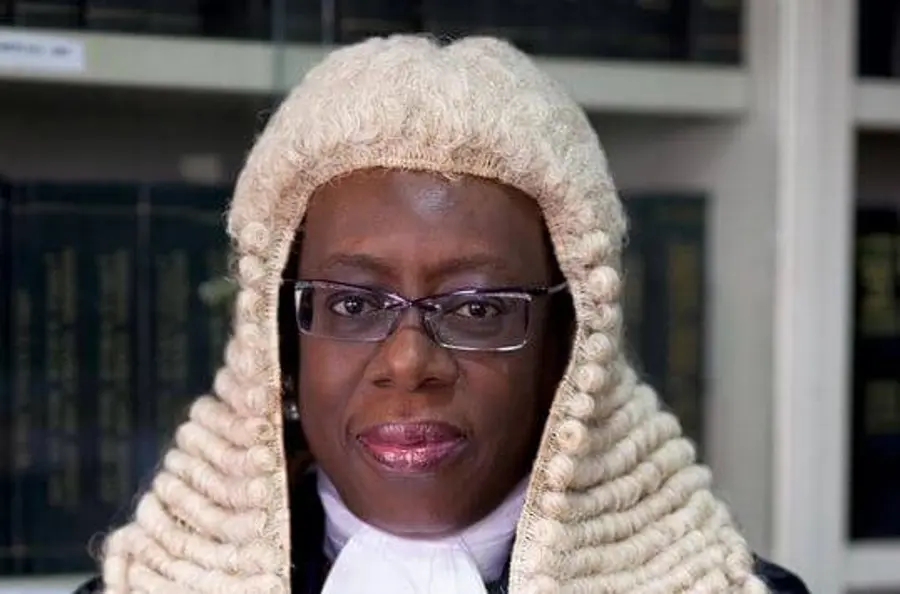
As the judiciary faces unprecedented challenges to its authority and reputation, senior lawyers and civil society leaders have called on Kudirat Kekere-Ekun, the incoming Chief Justice of Nigeria (CJN), to initiate significant reforms that will restore public confidence and elevate the standards of the nation’s judicial system.
Justice Kekere-Ekun is set to take over from the current Chief Justice, Olukayode Ariwoola, who will retire on August 22 upon reaching the mandatory retirement age 70. Kekere-Ekun, the most senior justice of the Supreme Court, will assume the role in an acting capacity pending her official confirmation.
Stakeholders’ Concerns and Recommendations
During a roundtable organized by the TAP Initiative for Citizens Development in collaboration with the Network of University Legal Aid Initiative (NULAI), stakeholders expressed concerns over the judiciary’s current state. They outlined the key areas that require immediate attention.
Ernest Ojukwu, Senior Advocate of Nigeria (SAN) and a professor of law emphasized the critical need for the incoming CJN to address the persistent issues plaguing the judiciary, such as the abuse of interim injunctions and ex-parte orders, which have contributed to the erosion of public trust in the legal system.
Martin Obono, Executive Director of the TAP Initiative, highlighted the importance of implementing clear guidelines to curb conflicting judgments and improve judicial coordination. He stressed that discipline and accountability within the judiciary must be reinforced to tackle the crisis surrounding political cases, election petitions, and the broader judicialization of politics.
A Call for Structural and Procedural Reforms
Mojirayo Ogunlana, Executive Director of Digicivic Initiative, underscored the importance of reforming the Supreme Court and ensuring that the judiciary operates with greater transparency and efficiency. She noted that the success of Justice Kekere-Ekun’s tenure would largely depend on the strategies implemented to address these systemic challenges.
Ogunlana recommended that the incoming CJN prioritize merit-based appointments, as mandated by Section 23(1) of the Nigerian Constitution, to combat the historical nepotism that has undermined the judiciary’s credibility. She also called for ongoing training for justices in emerging fields such as information technology and artificial intelligence to enhance the judiciary’s ability to handle modern legal issues.
Integrating Modern Technology for Efficiency
The integration of modern technology into the judicial process was another key area of focus during the roundtable. Ogunlana pointed out that leveraging digital systems and virtual hearings, as supported by Section 36(1) of the Constitution, would help streamline court processes and reduce delays, which have long been a source of frustration for litigants and legal practitioners alike.
Addressing the issue of conflicting judgments and interim injunctions, Ogunlana advocated for the establishment of clear guidelines and improved coordination among judges, as outlined in Sections 6 and 36 of the Constitution. She emphasized that consistency and fairness in judicial decisions are essential to restoring public confidence in the legal system.
Engaging Stakeholders for Sustainable Reforms
The roundtable participants also stressed the importance of engaging a broad spectrum of stakeholders, including legal practitioners, civil society organizations, and the general public, in the reform process. By incorporating diverse perspectives and inputs, the judiciary can ensure that the reforms are comprehensive and effective in addressing the challenges facing the legal system.
Ogunlana concluded by urging the incoming CJN to take bold and decisive actions to restore the judiciary’s integrity and leave a lasting legacy of transparency, accountability, and justice. She emphasized that these reforms are not only necessary to strengthen the rule of law but also to ensure that the judiciary remains a beacon of hope for all Nigerians seeking justice.
Conclusion
As Kudirat Kekere-Ekun prepares to assume the role of Chief Justice of Nigeria, the expectations from stakeholders are clear: the judiciary must undergo significant reforms to regain its stature as an independent and credible institution. By addressing the critical issues highlighted during the roundtable, Kekere-Ekun has the opportunity to steer the judiciary toward a path of transparency, efficiency, and justice for all.
Written By Chiamaka Adindu